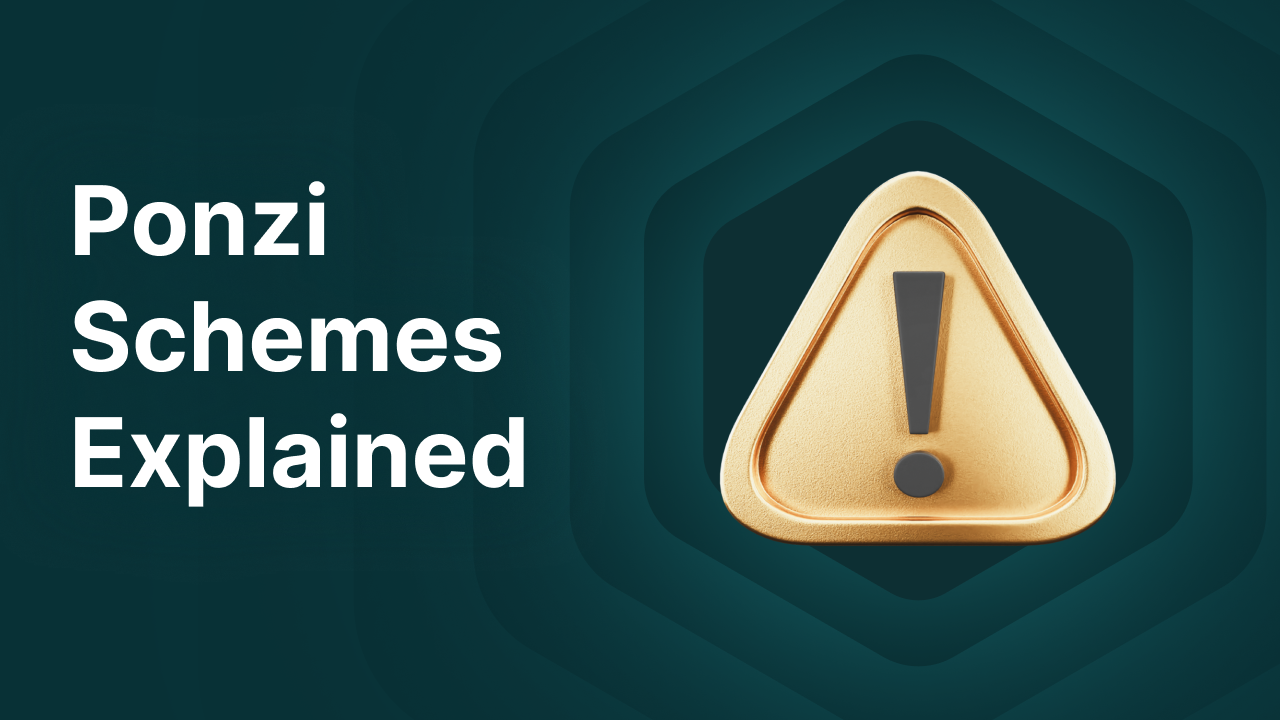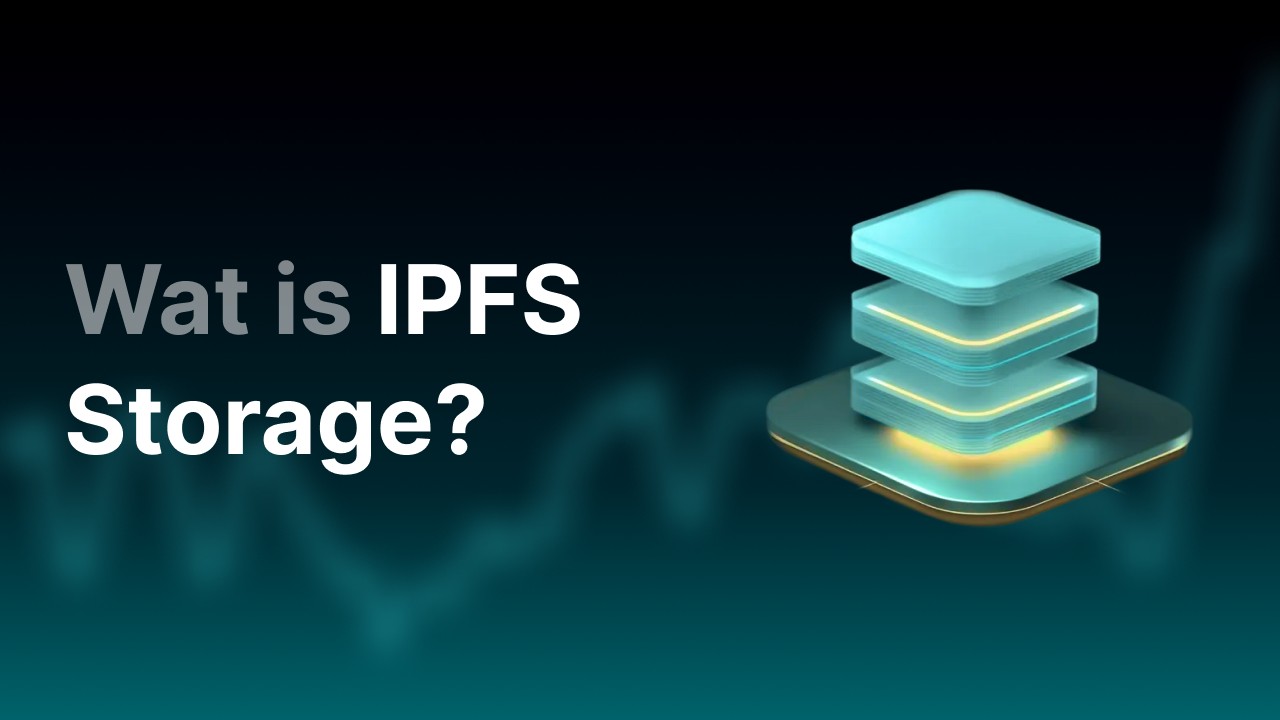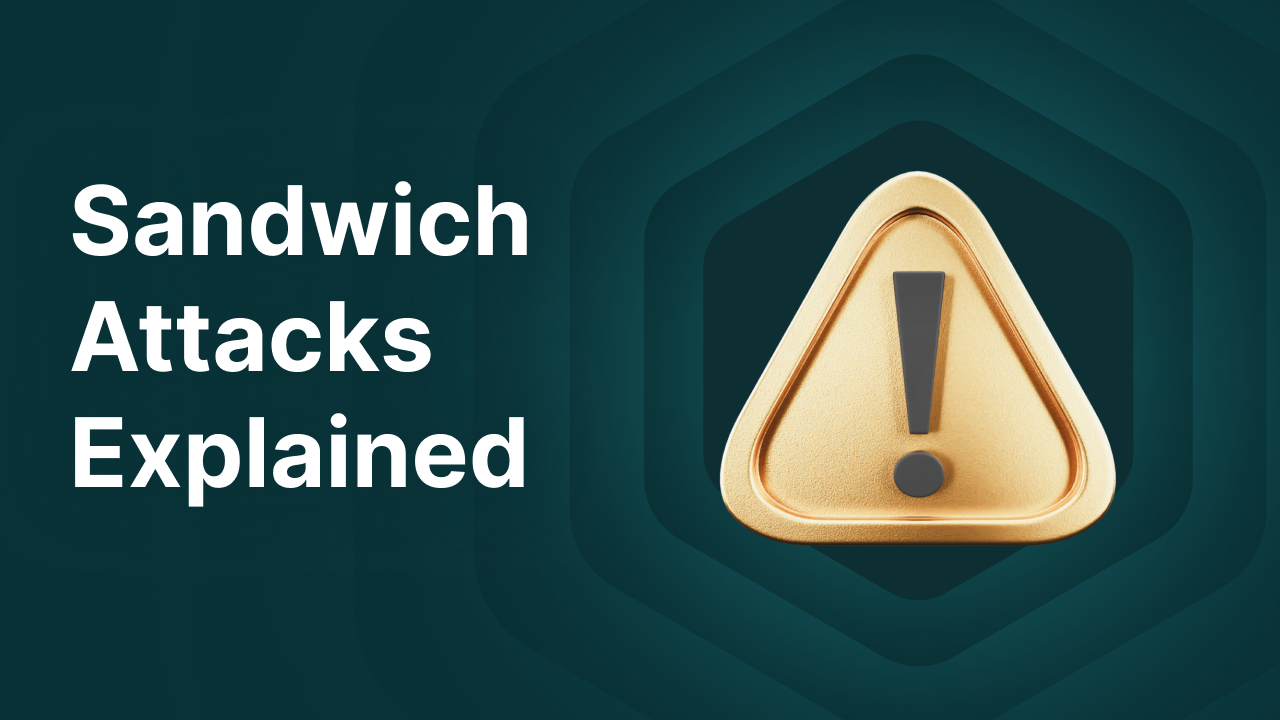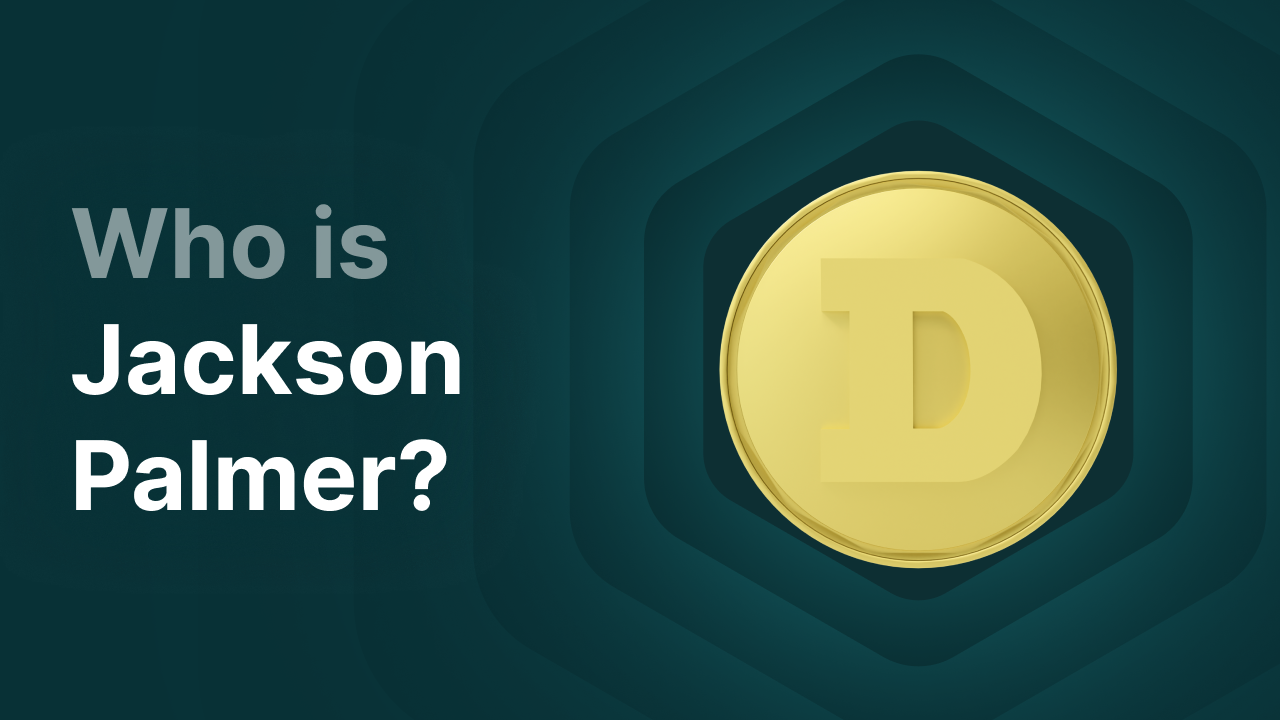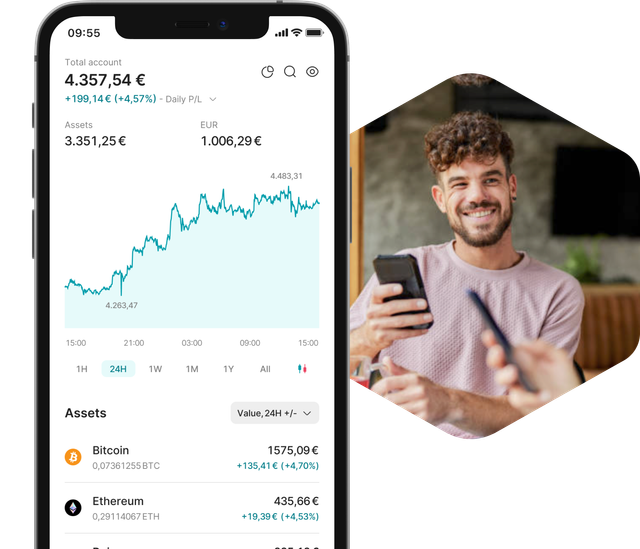What is DeFi and how does it work?
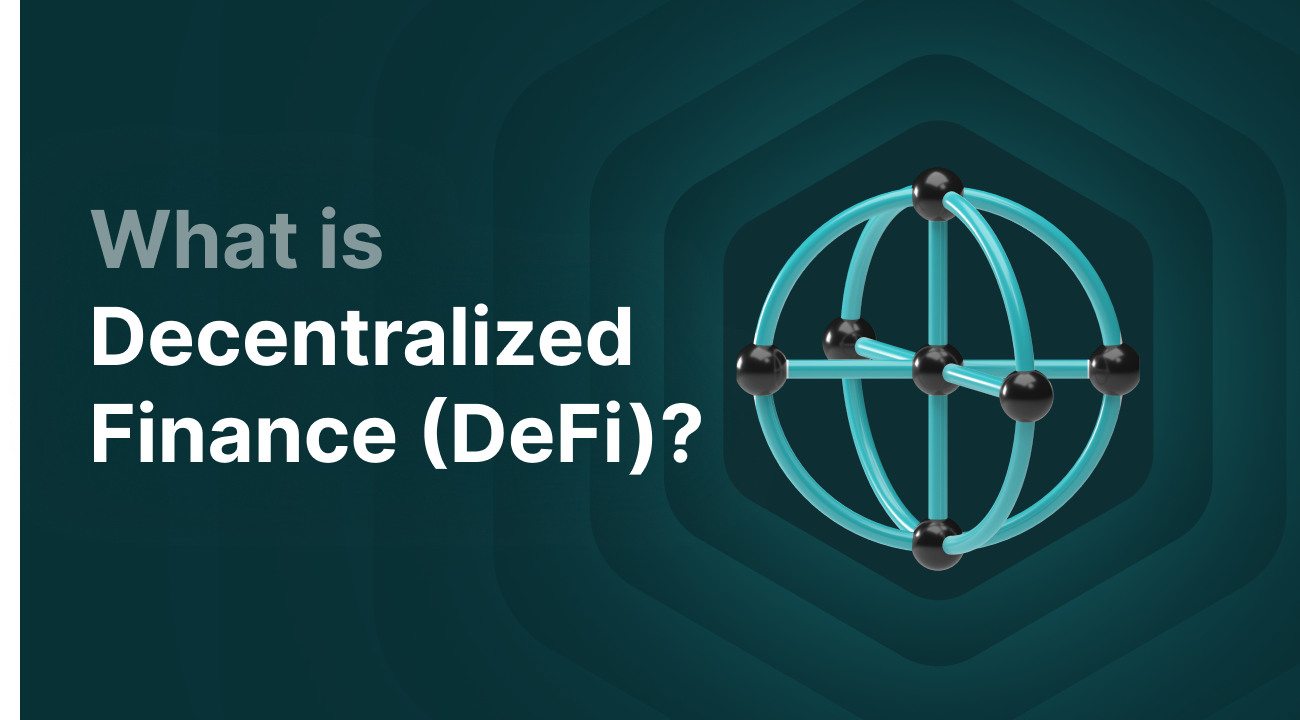
What is DeFi?
Decentralized Finance (DeFi) is financial services without banks, made possible by smart contracts on the blockchain. DeFi is a type of financial system that mimics the banking system through the use of blockchain technology. Within this system, you can trade cryptocurrencies (cryptocurrency) without using large central exchanges that have control over your assets.
Key Takeaways
- DeFi offers financial services without banks via smart contracts on the blockchain, allowing you to trade, lend, save, and more directly with others, without intermediaries.
- Advantages of DeFi include full transparency, 24/7 availability, high security, and access for anyone with a crypto wallet.
- DeFi also carries risks: such as technical complexity, possible bugs in smart contracts, hackers, and the absence of a central party to help in case of errors or hacks.
- DeFi is different from cryptocurrency: crypto is digital money like Bitcoin, while DeFi refers to the apps and systems that let you use that money for financial activities without banks.
- Investing in DeFi is easy, but first learn how it works and be cautious with your money, as DeFi is still relatively new and unregulated.
How does DeFi work?
DeFi operates within the blockchain ecosystem and manages all systems and processes without the use of a central party. Decentralized finance runs on decentralized apps (dApps), which themselves run on smart contracts. So, you're essentially trading through a DeFi dApp.
Example: Ethereum and DeFi
Ethereum is one of the most popular platforms for DeFi. Suppose you want to lend money and earn interest. Instead of going to a bank, you use a dApp like Aave or Compound, built on Ethereum.
This dApp uses smart contracts to automatically determine your interest and ensure you get your money back. There's no central party involved, and everything runs via code on the Ethereum blockchain. So, Ethereum allows you to buy, sell, lend, or save without needing a bank or other intermediary.
What are the benefits of DeFi?
Some see DeFi as a technological revolution, but what are the actual advantages of using DeFi? Below are the main benefits:
- No central party: You trade directly on the blockchain, without banks or other centralized entities.
- Full transparency: All smart contracts are visible on the blockchain and can be reviewed by anyone.
- High security: It's very secure because all smart contracts are publicly visible, and a blockchain is extremely difficult to manipulate.
- Access for everyone: All you need is an internet connection and a crypto wallet to participate.
- Always available: DeFi runs 24/7, with no opening hours or holidays.
- Wide range of applications: Think lending, borrowing, saving, trading, insuring, buying and selling (and more).
What are the risks of DeFi?
Like any technological innovation, DeFi also comes with risks. Below are the main drawbacks:
- Limited scalability: some DeFi protocols are still slow or expensive during network congestion.
- Technical complexity: DeFi can be hard to understand for beginners, which can lead to mistakes (and thus the loss of funds).
- No regulation: In case of errors or hacks, there is no central party to help or compensate you.
- Risk of bugs in smart contracts: Smart contracts can be great, but they can also contain errors or be exploited.
- Irreversible transactions: once money is sent, it cannot be retrieved. Even if it was a mistake.
What is the difference between DeFi and cryptocurrency?
There is a big difference between cryptocurrency and DeFi. Cryptocurrency is digital money. Think of Bitcoin or Ethereum. You can send it, receive it, and store it without a bank, and you are in full control of your funds.
DeFi (Decentralized Finance) is a system to use that digital money—for example, to lend, save, trade, or earn interest. The difference between DeFi and traditional financial products is that these applications all run on smart contracts, meaning there’s no central party to turn to. The idea is: less fraud and more control in your own hands.
Simple example:
- Crypto = money (like Bitcoin and Ethereum)
- DeFi = decentralized apps like Aave and Uniswap.
What DeFi coins are there?
There are thousands of different DeFi coins available, each with its own value or function. Most DeFi coins are named after the protocol or blockchain they belong to. At Finst, you can trade dozens of DeFi coins. Below is a small selection of DeFi coins available on Finst:
How can you invest in DeFi?
Investing in DeFi projects is relatively easy. To invest in DeFi, you can easily view which cryptocurrencies belong to the DeFi category on Finst. No technical knowledge is required and you can simply trade through our platform.
In three simple steps, you can quickly buy your first DeFi coins:
- Download the Finst app and open a free account
- Deposit funds into your account
- Invest in your favorite DeFi coins by clicking on our specially selected DeFi tokens.
How can you use DeFi?
DeFi (decentralized finance) started as a way to give people without banks access to financial services like saving or lending. It has now grown into a full-fledged sector in which you can participate in many ways. Below are the most popular use cases within DeFi:
-
Investing in crypto
Many people use DeFi to buy or sell crypto without using a centralized exchange. Through platforms like Uniswap or Pancakeswap, you can trade directly with other users. -
Providing liquidity
Liquidity means being able to easily buy or sell your crypto. For this, there are liquidity pools (places where people deposit their crypto so others can trade, in exchange for a reward). You help the market run smoothly and earn passive income. -
Lending and yield farming
Yield farming is a strategy in the crypto world where you provide liquidity (e.g. coins or tokens) to decentralized platforms (DeFi) and receive rewards in return. Platforms like Aave or Compound handle this automatically via smart contracts. Some apps even offer flash loans, where you borrow without collateral for a short time (this is more for advanced users). -
Gambling & prediction markets
There are also platforms where you can bet on the outcome of a sports match, election, or other event. We always recommend carefully considering whether this is wise. Some gambling platforms operate illegally or are not safe. Always be cautious. -
Non-Fungible Tokens (NFTs)
NFTs are unique digital items that you can buy, sell, or collect. The hype has cooled down a bit, but they remain popular among investors. Through DeFi, you can buy or sell NFTs or sometimes even play games with them.
In short: with DeFi, you can do much more than just hold crypto. You can trade, save, lend, predict, play—and all of that without intermediaries, just with your wallet and an internet connection.
DeFi Hype
DeFi was relatively new until not too long ago. It truly gained popularity during the bull run of 2020–2021. This was when the total DeFi market reached its then all-time high.
DeFi in 2018 — the term DeFi was first mentioned in a Telegram chat between Ethereum developers. The idea: to build an open financial system without banks or other central parties. This is how DeFi was born.
DeFi in 2020 — during the so-called DeFi Summer, it became incredibly popular. New DeFi projects were emerging almost daily. Think of Uniswap, Aave, and many other DeFi apps. The total value locked in these apps — also known as TVL — skyrocketed into the billions for the first time that year.
DeFi in 2021 — the peak was reached. More and more investors, developers, and projects entered the market. Even new blockchains like Solana and Avalanche developed their own DeFi ecosystems. One example is Decentraland, a game in which users could buy and sell digital land. It was a full game powered by the blockchain.
DeFi in 2022 — the mood shifted. Due to the return of the bear market and the collapse of several major crypto companies (like FTX), DeFi TVL dropped significantly. Many projects disappeared or lost users. The hype gave way to a more critical view on security, scalability, and user experience.
Still, DeFi has not disappeared. The market has matured, with a focus on sustainability, better user experience, and stricter security. The hype may be over, but DeFi is still alive.
Can You Make Money with DeFi?
Yes, you can earn money through DeFi in various ways. As mentioned, you can stake, yield farm, borrow, buy, sell, and even gamble through DeFi platforms. But be careful — there are risks involved! So make sure you understand what you're getting into before locking up your crypto.
Is DeFi Safe?
In general, DeFi is safe. But unfortunately, hacks and bugs still occur, and there is no customer support to help you if something goes wrong. You’re on your own when issues arise. Compared to a traditional bank, DeFi is (still) less safe, especially for beginners. Use it wisely, and only with money you can afford to lose. If you’re a beginner trader, we recommend choosing a centralized platform like Finst.
Final thoughts
DeFi gives you the freedom to manage your own money, without the involvement of banks or other central entities. You can save, borrow, trade, and even earn passive income. But that freedom also comes with responsibility. You need to know what you’re doing, because if something goes wrong — whether it’s a mistake or a hack — there’s no one to help you. The technology is promising but still young. So learn the basics, start small, and only use money you can afford to lose. Want to benefit from the DeFi market without the technical knowledge and risk? With Finst, you can easily invest in DeFi coins — safely, quickly, and without complicated steps.
Disclaimer: The information in this article is for informational purposes only and should not be considered financial advice. Always do your own research before making investment decisions.
